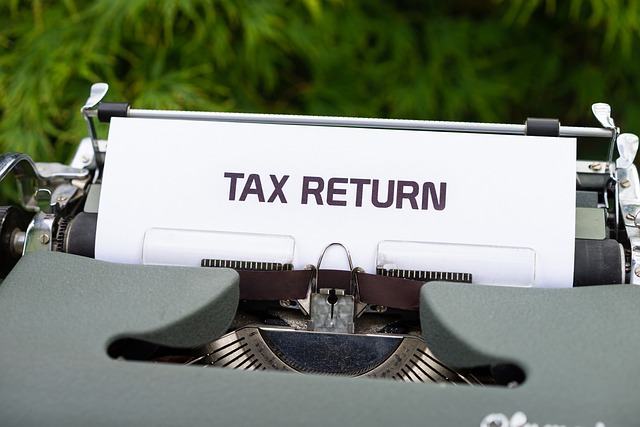Investors interested in acquiring real estate below market price can participate in tax lien and ta…….
Category: Lien Sales
Lien-Sales: A Comprehensive Analysis
Introduction
In the intricate dance of finance, where capital seeks opportunity, and risk meets reward, lien-sales emerge as a pivotal player. This article delves into the multifaceted world of lien-sales, unraveling its complexities, historical context, and significance within the broader financial landscape. By the end of this exploration, readers will have a nuanced understanding of how lien-sales function, their global impact, economic role, and the future trajectory of this dynamic financial instrument.
Understanding Lien-Sales
Lien-sales, also known as trust deed investments, involve purchasing a lien against real estate property with the intention to receive payments over time. This process allows investors to secure their investment with a legal interest in the property, providing a structured repayment plan. The core components of lien-sales include the underlying real estate asset, the lienholder (investor), the borrower (property owner), and the trustee who manages the transaction. Historically, lien-sales have been used as a tool for foreclosed property auctions, where investors could buy liens at a discount with the expectation of full repayment over time or through property sale proceeds.
Global Impact and Trends
The influence of lien-sales extends across continents, affecting real estate markets from the United States to Australia, and impacting investors in countries like Canada and South Africa. Key trends shaping its trajectory include increased regulatory oversight, technological advancements in property valuation and online auctions, and a growing interest among global investors seeking alternative investment opportunities. In regions with high foreclosure rates or economic instability, lien-sales have become an essential financial instrument, reflecting both the risks and rewards of real estate investment.
Economic Considerations
Lien-sales contribute to the stabilization of local economies by infusing capital into real estate markets and providing a mechanism for asset recovery. Market dynamics often favor investors who can navigate the complexities of lien-sales, leading to investment patterns where seasoned investors dominate the market. Within economic systems, lien-sales serve as an indicator of market health, with fluctuations in lien-sale activity reflecting broader economic trends.
Technological Advancements
Technology has revolutionized lien-sales through online platforms that facilitate bidding, electronic recording of deeds and liens, and advanced data analytics to assess property value and risk. These advancements have increased transparency, efficiency, and accessibility for both investors and borrowers. The future potential includes blockchain technology, which could offer secure, transparent, and tamper-proof transactions in lien-sales.
Policy and Regulation
A mosaic of policies and regulations govern lien-sales, varying by jurisdiction. These frameworks aim to protect investors, ensure fair market practices, and safeguard borrowers’ rights. Legislation around foreclosure processes, investor qualifications, and transparency requirements are critical in shaping the lien-sale market. Understanding these regulations is essential for navigating this field effectively.
Challenges and Criticisms
Lien-sales face challenges such as market volatility, regulatory complexities, and potential misuse by unscrupulous investors. Criticisms often highlight the risk of exploitation of distressed property owners and the need for more stringent regulations to protect consumers. Solutions to these issues include improved transparency, education for both investors and borrowers, and robust enforcement of existing regulations.
Case Studies
Successful applications of lien-sales have been demonstrated across various markets. A case study might involve a distressed property owner in the Midwest who successfully navigated foreclosure through a lien-sale transaction, or an investor from the Pacific Northwest who capitalized on a lucrative lien-sale opportunity. These real-world examples provide valuable lessons and best practices for engaging in lien-sales.
Future Prospects
The future outlook for lien-sales is promising, with growth potential in emerging markets and the continuous integration of technology to enhance the process. Emerging trends include a shift towards more regulatory oversight, increased professionalization of investors, and the potential for lien-sales to become an integral component of real estate investment strategies globally. Strategic considerations for investors will involve staying informed on market dynamics, understanding legal frameworks, and leveraging technology to their advantage.
Conclusion
Lien-sales represent a complex yet vital financial instrument within the real estate ecosystem. This article has illuminated its multifaceted role, from economic stabilization to technological innovation, and the critical importance of policy and regulation in its functioning. As we look forward, lien-sales are poised to play an increasingly significant role in global finance, underpinned by a blend of tradition and modernity.
FAQ Section
-
What are lien-sales?
Lien-sales involve purchasing a lien against real estate property with the intention to receive payments over time, often as a result of foreclosure proceedings. -
Are lien-sales legal?
Yes, lien-sales are a legal and recognized method of real estate investment, governed by specific laws and regulations that vary by jurisdiction. -
Who can participate in lien-sales?
Typically, lien-sales are open to accredited investors or those with significant investment experience due to the associated risks and complexities. -
How do lien-sales impact property owners?
Lien-sales can provide distressed property owners with a means to avoid full foreclosure by selling their property’s lien rights, allowing them to stay in their home for a longer period or avoid eviction. -
What are the risks of investing in lien-sales?
Risks include potential non-payment by the borrower, property devaluation, and the complexities of navigating foreclosure laws. Investors must conduct thorough due diligence and understand the market dynamics of their investment areas. -
How have technological advancements impacted lien-sales?
Technology has made lien-sales more accessible through online platforms, improved data analysis for assessing property value, and enhanced security in transactions. -
What is the role of a trustee in lien-sales?
The trustee administers the transaction between the lienholder and the borrower, ensuring compliance with legal requirements and facilitating payment arrangements.
Please note that this content serves as an overview and does not constitute investment advice. Investors should conduct their own due diligence or consult with a financial advisor before engaging in lien-sale transactions.
Mastering Tax Lien Sales: A Guide to Profitable Real Estate Investments
Tax lien certificates allow investors to buy a claim on a property owner's delinquent taxes at…….
Mastering Tax Lien Investments: A Guide to Profitable Real Estate Acquisitions
Tax lien sales present an investment avenue where individuals can purchase unpaid tax debts with in…….
Mastering Real Estate Investment through Tax Lien Sales: A Comprehensive Guide
Tax lien certificates offer an investment opportunity within real estate for those interested in ear…….
Mastering the Art of Tax Lien and Mortgage Lien Investments
Tax lien certificates and mortgage lien investments are alternative real estate investment opportuni…….
Strategic Guide to Profitable Property Investment via Tax Lien and Deed Sales
Tax lien and deed sales are investment avenues that allow individuals to acquire properties below ma…….
Mastering Tax Lien and Mortgage Lien Investments: A Guide to Profitable Real Estate Foreclosures
Tax and mortgage lien investments offer a niche opportunity for high returns through purchasing tax …….
Maximizing Profits in Real Estate: A Guide to Tax and Mortgage Lien Sales
Tax lien sales are an investment avenue within real estate where investors purchase delinquent tax o…….
Unlocking Profits: Mastering Real Estate Through Tax Lien Sales
Investing in tax lien sales is an attractive strategy for real estate investors due to the potentia…….
Navigating Real Estate Lien Sales: A Pathway to Profitable Investment
Investing in tax lien certificates or tax deed sales can diversify real estate portfolios beyond tr…….









